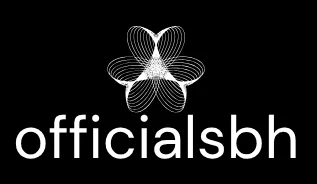In a world that glorifies grinding and hustling, many find themselves trapped in a never-ending cycle of work and stress. The mantra of “rise and grind” might sound motivational, but it often leads to burnout and a sense of inadequacy. Who knew that chasing success could feel like a marathon with no finish line?
Hustle culture promises riches and recognition but often delivers exhaustion and anxiety instead. It’s time to take a step back and question whether this relentless pursuit of productivity is worth sacrificing mental health and personal happiness. After all, nobody wants to be the over-caffeinated zombie at the office, right? Let’s explore why embracing balance might just be the key to a happier, healthier life.
Table of Contents
ToggleUnderstanding Hustle Culture
Hustle culture emphasizes constant work and relentless productivity. It promotes the idea that success requires sacrificing personal time and well-being.
Definition of Hustle Culture
Hustle culture encompasses an ideology where individuals prioritize work above all else. This mindset encourages long hours and a constant push for achievement. Individuals often feel pressured to be in a state of perpetual motion. The mantra “rise and grind” exemplifies this mentality, implying that hard work is the only path to success. As such, many individuals equate their self-worth with their productivity levels. This association can foster an environment of competition and comparison.
Historical Context
Hustle culture traces its origins to the capitalist framework that prioritizes profit and productivity. The late 20th century saw the rise of tech entrepreneurs advocating for relentless work ethics. Events such as the 2008 financial crisis intensified the focus on working harder to maintain job security. Over the years, social media further fueled this culture by showcasing achievements and lifestyles rooted in constant busyness. As a result, hustle culture became entrenched in various industries, influencing career paths and personal aspirations.
The Negative Impacts of Hustle Culture

Hustle culture poses several detrimental effects on individuals’ lives. Its glorification of relentless work contributes to significant mental and physical health challenges.
Mental Health Consequences
Burnout frequently manifests among those entrenched in hustle culture. Individuals often report increased anxiety, depression, and feelings of inadequacy. Instead of promoting fulfillment, continuous pressure to perform depletes motivation and self-worth. Vulnerability to imposter syndrome escalates as individuals compare their productivity to others. Surveys indicate that approximately 77% of workers experience burnout at some point in their careers. This relentless pace leads many to encounter overwhelming stress, hindering their ability to engage in self-care and meaningful relationships.
Physical Health Risks
Physical health deteriorates when individuals prioritize work over their well-being. Chronic stress linked to hustle culture contributes to various ailments, such as cardiovascular issues and weakened immune systems. Lack of sleep often results from long working hours, impacting overall health quality. For instance, studies show that about 43% of employees report insufficient sleep due to work demands. Neglecting exercise and poor nutrition frequently accompany the hustle mentality, exacerbating health-related problems. Clear connections exist between relentless productivity and an increased risk of serious health conditions, further emphasizing the culture’s detrimental impact.
Signs That Hustle Culture Is Toxic
Hustle culture manifests in various detrimental ways, affecting individuals’ mental and physical health. Recognizing the signs is essential for making healthier lifestyle choices.
Burnout and Exhaustion
Burnout emerges as a primary indicator of hustle culture’s toxicity. Individuals often report overwhelming fatigue, diminished interest in work, and ineffective functioning. Approximately 77% of workers experience burnout during their careers, revealing the scale of the issue. Increased stress levels can contribute to chronic exhaustion, affecting both personal and professional life. A lack of recovery time results in persistent feelings of inadequacy, which further isolates individuals. Seeking help or taking breaks can feel impossible, reinforcing a destructive cycle of overwork and depleted energy.
Lack of Work-Life Balance
A lack of work-life balance frequently characterizes toxic hustle culture. People may feel compelled to prioritize work over personal lives, leading to strained relationships and neglected self-care. With constant demands for productivity, time for leisure and relaxation diminishes. The pressure to remain continuously active often fosters guilt for taking breaks or disconnecting. Many report feelings of anxiety when considering time away from work responsibilities. This imbalance serves to erode overall well-being, as 43% of employees indicate insufficient sleep due to job demands. Recognizing this imbalance is critical for fostering healthier lifestyles and relationships.
Challenging Hustle Culture
Challenging hustle culture involves recognizing its pitfalls and prioritizing well-being. Individuals can seek alternatives to relentless work that promote fulfillment.
Finding Alternatives to Hustling
Exploring alternatives to hustling can restore balance to life. Setting defined work hours allows individuals to separate professional responsibilities from personal time. Engaging in hobbies stimulates creativity and enjoyment beyond the workplace. Pursuing lifelong learning encourages growth without the pressure of constant performance. Embracing teamwork fosters collaboration rather than competition, creating a supportive environment. Incorporating mindfulness practices, like meditation or yoga, enhances mental clarity and reduces stress. Seeking mentorship offers guidance and encourages a focus on quality over quantity in work.
Promoting a Balanced Lifestyle
Promoting a balanced lifestyle directly combats the overwhelm associated with hustle culture. Prioritizing self-care ensures individuals recharge their physical and mental health. Scheduling regular breaks during work hours prevents burnout and refreshes focus. Cultivating strong relationships supports emotional well-being and reinforces community. Adopting a healthy diet fuels productivity, while regular physical activity boosts energy levels and resilience. Allocating time for relaxation nurtures inner peace and enhances overall satisfaction. Finding joy in everyday moments fosters a sense of purpose beyond work, creating a holistic approach to life.
Hustle culture’s relentless push for productivity can have devastating effects on individuals’ well-being. The constant pressure to perform often leads to burnout and a distorted sense of self-worth. By recognizing the signs of this toxic mindset, individuals can take proactive steps toward a healthier lifestyle.
Embracing balance and prioritizing self-care are vital for long-term happiness and success. It’s essential to challenge the notion that one’s value lies solely in their output. Instead, fostering a culture that celebrates well-being and personal growth can pave the way for a more fulfilling life. Ultimately, finding joy in moments outside of work can lead to a richer and more meaningful existence.



